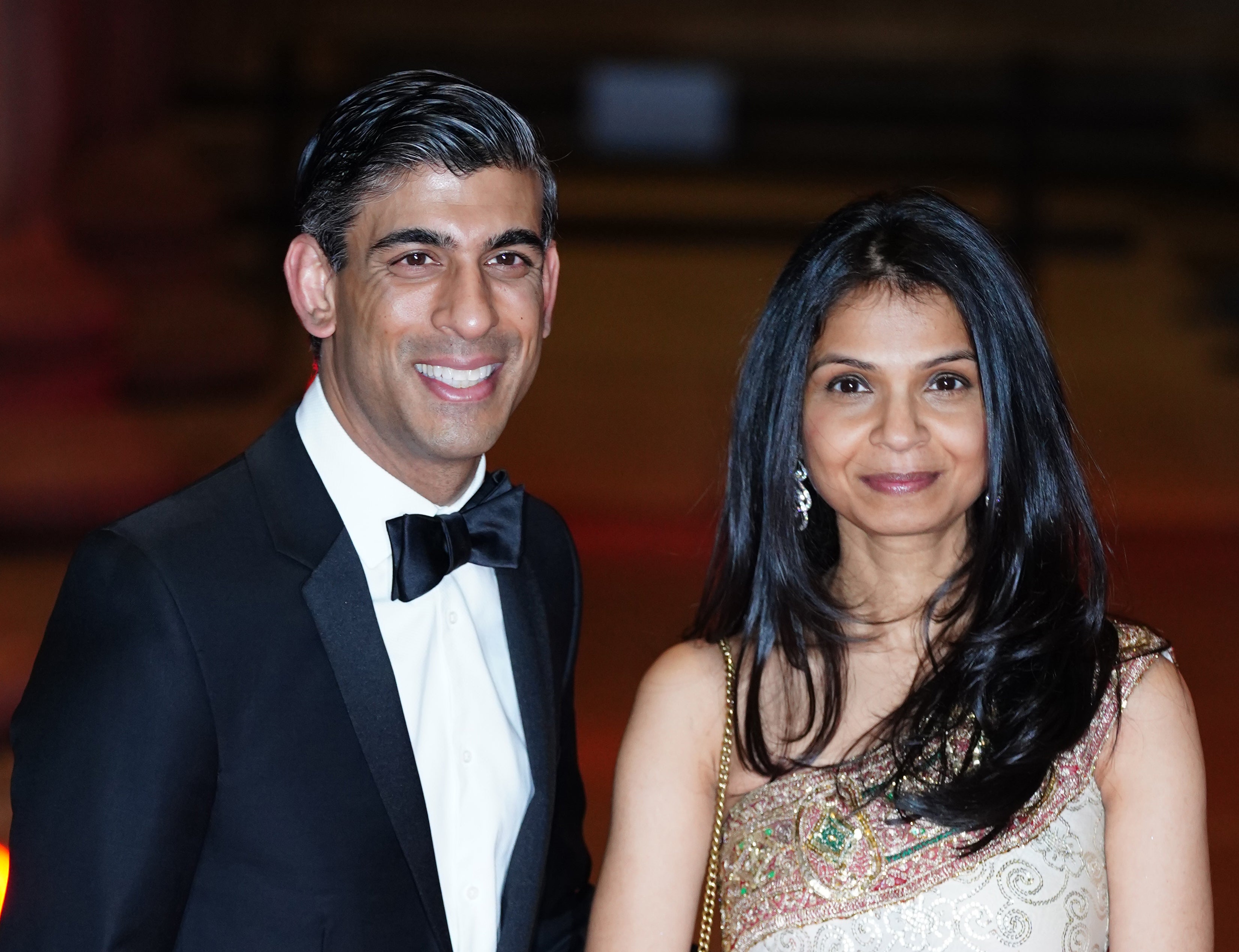Rishi Sunak’s wealth may be a problem if he wants to be Tory leader – can his family story offset MPs’ angst?
Sunak is believed to be the richest man in the Commons, courtesy of his banking career and his marriage to Akshata Murthy, daughter of one of India’s most successful entrepreneurs


Your support helps us to tell the story
From reproductive rights to climate change to Big Tech, The Independent is on the ground when the story is developing. Whether it's investigating the financials of Elon Musk's pro-Trump PAC or producing our latest documentary, 'The A Word', which shines a light on the American women fighting for reproductive rights, we know how important it is to parse out the facts from the messaging.
At such a critical moment in US history, we need reporters on the ground. Your donation allows us to keep sending journalists to speak to both sides of the story.
The Independent is trusted by Americans across the entire political spectrum. And unlike many other quality news outlets, we choose not to lock Americans out of our reporting and analysis with paywalls. We believe quality journalism should be available to everyone, paid for by those who can afford it.
Your support makes all the difference.Two short months ago, Downing Street categorically denied there had been a lockdown party. Last night, the Metropolitan Police said they’d be contacting up to 50 people as part of Operation Hillman – their investigation into events on eight dates between May 2020 and April 2021.
It’s quite a turnaround. And it’s the reason why – even though no one knows quite how many letters Sir Graham Brady has in his possession – few in Westminster would now bet on Boris Johnson remaining prime minister for too much longer.
While the prime minister serenades his new director of communications to the dulcet strains of Gloria Gaynor, MPs are eagerly anticipating dancing to someone else’s tune. Chancellor Rishi Sunak is clearly the man to beat. Serious, disciplined, personable: for his many fans, he’s the perfect antidote to the “king of chaos” currently occupying the seat of power.
But even those who support him are worried about the wisdom of electing a phenomenally wealthy leader just as the cost-of-living crisis really starts to crunch. Sunak is believed to be the richest man in the Commons, courtesy of his banking career and his marriage to Akshata Murthy, daughter of one of India’s most successful entrepreneurs. As people struggle with soaring inflation, eye-popping energy bills and a tax burden rising to its highest in 70 years, Labour’s attack lines are already written.
Yet in some ways, Sunak is a classic Conservative success story. His parents, Yashvir and Usha Sunak – both Hindu Punjabis – left east Africa for Southampton in the mid- to late 1960s. Sunak senior became a local GP, and his wife ran a pharmacy. Their son won a place to Winchester, but missed out on a scholarship, so they took on extra work to pay for the school fees, making what Sunak has described as great “sacrifices”.
It’s not quite the back story of Sajid Javid or Nadhim Zahawi, but in a forthcoming contest the chancellor could surely be expected to elaborate on the values he inherited from his parents: a strong work ethic and a commitment to public service.
On paper, Liz Truss might have a better chance of connecting with the public. The foreign secretary herself described her teacher parents as being “to the left of Labour”. Indeed, her mum was even a member of the Campaign for Nuclear Disarmament (CND). No fancy public school for the young Liz – she attended a comprehensive in northeast Leeds. But MPs who took a second look at Truss when she started posting eye-catching social media content now wonder if there’s much beyond an Instagram handle and a few bizarre bons mots about cheese.
To keep up to speed with all the latest opinions and comment, sign up to our free weekly Voices Dispatches newsletter by clicking here
Most backbenchers assume Sunak will get to the last two in a contest. But even some Brexiteers are wondering if Remainer Jeremy Hunt might yet prove to be his most fearsome opponent. Unlike Sunak, he doesn’t risk being tarnished by association with the hard-partying Johnson era, having sat it out on the back benches. There, he’s been able to make some perspicacious interventions on Covid, while maintaining a mostly dignified silence on his erstwhile rival’s travails.
“I won’t say my ambition has completely vanished, but it would take a lot to persuade me to put my hat in the ring,” he told a recent edition of The House magazine. He might as well have put out a press release announcing his campaign team.
One staunchly Brexit-backing former minister surprised me by telling me he was tempted by Hunt, arguing that he’s experienced, he’s emollient, and he looks and sounds like a grown-up. And above all, the lesson from Conservative leadership contests is to expect the unexpected.
Johnson was the favourite in 2016. Theresa May won. In 2005, David Davis was fancied, but David Cameron snatched it. In 1990, Michael Heseltine was hotly tipped but John Major emerged victorious. And in 1975, it was Ted Heath’s to lose, but Margaret Thatcher was crowned.
The Johnson story is coming to an end. But the first sentence of the sequel has yet to be written.
Cathy Newman presents ‘Channel 4 News’, weekdays at 7pm
Join our commenting forum
Join thought-provoking conversations, follow other Independent readers and see their replies
Comments